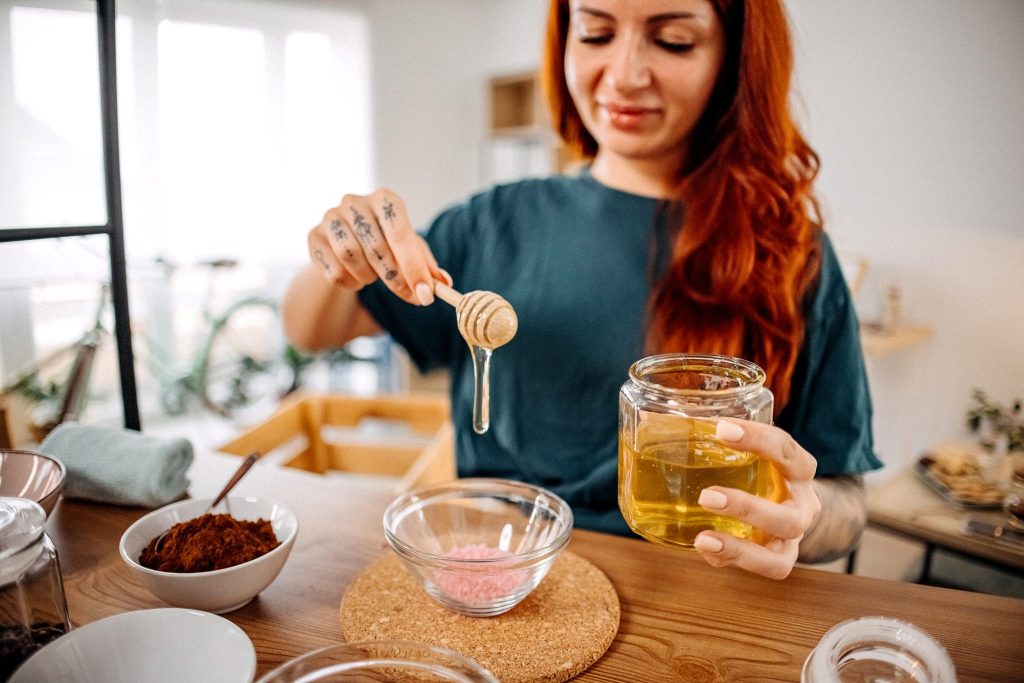Of the added sweeteners at your disposal, honey is considered one of the healthier options. A natural sweetener made from flower nectar collected by bees, honey’s antioxidant and anti-inflammatory properties among many other health benefits make it an appealing option—not to mention it tastes good—but picking up a bottle of honey at the grocery store might not provide the health boost you think.
That’s according to Ferhat Ozturk, a professor with the University of Texas at San Antonio, project director of HONEY Pathway, and expert with the American Beekeeping Federation, who told Newsweek his research analyzing honey samples found that honey from local beekeepers is four times more biologically active than grocery store honeys.
“About one-third of honeys in the international trade market are fraud or adulterated,” he said.
And some store-bought honey has been mixed with high fructose corn syrup or rice syrup, Beth Czerwony, a dietician at the Center for Human Nutrition, told Newsweek.
“Manufacturers will end up diluting down honey,” she said. “So it’s a cheaper product, and when you taste the sweetness, you get fooled.”
You can check the labels to see if the only ingredient is honey—if it says “honey blend,” it is not pure honey, according to the U.S. Food and Drug Administration—however manufacturers don’t have to list the additives that have diluted the honey.
Health benefits of honey
When honey is diluted, so are its health properties, Czerwony said, “because you’re not getting the full concentration of those antioxidants and polyphenols that you get from raw honey.”
Czerwony said if someone wants to maximize the health benefits from honey, they should buy it from a farmer’s market or a local beekeeper as to not risk buying a diluted version.
What exactly are the health benefits of honey? According to a 2023 systematic review and the Cleveland Clinic, which looked at many varieties, honey’s benefits may include:
- Decreased blood glucose levels
- Antioxidant properties
- Anti-inflammatory properties
- Soothe coughs and an irritated, sore throat
- Manuka honey can potentially treat cuts and sores
- May help lower blood cholesterol thanks to antioxidants such as beta-carotene, vitamin C, and uric acid and minerals, such as copper, manganese, selenium, and zinc.
That being said, it’s also important to remember that honey is concentrated sugar, Czerwony pointed out. “It is a very good, whole food you can implement into your diet, but there can be too much of a good thing. Be aware of your health conditions,” she said.
“Don’t have tons of it throughout the day,” she added. “It has calories, and it can affect blood sugar negatively. Two to three tablespoons is what we say is the maximum based on the amount of sugar.”
Raw honey vs. pasteurized honey
Raw honey comes directly from a beehive, with no processing done to it, and is often found at farmer’s markets or straight from a beekeeper. As Czerwony pointed out, raw honey is packed with more nutrients and health benefits versus what you may find at the grocery store.
While some unpasteurized foods are usually not considered safe—such as raw milk—that’s not the case for raw honey; however, Czerwony said that children under three shouldn’t consume raw honey.
Pasteurized honey is the most common form you’ll see at the grocery store, which looks more translucent because it has been processed to remove imperfections (like pollen) and to improve its shelf life.
How to shop for honey at the store
Czerwony told Newsweek that cost can be one of the first indicators of a lower quality honey. But one of the biggest giveaways is the appearance, she said.
“The lighter honey, I would suspect, is diluted down,” Czerwony said. It’s better to look for a darker, amber color instead. Ozturk said that the darker the color, the more biological activity, and the better nutrient content. Less diluted honey may also crystallize easier because of its naturally lower water content, Czerwony said.
The best way to find the healthiest honey is to purchase it from a local beekeeper, Ozturk said.
That being said, you can still buy honey from the grocery store—it just may not give you the health boost you’re looking for.
“If you’re looking at it as a sweetener, it may not bother you,” Czerwony said. “But if you’re looking for actual anti-inflammatory properties, make sure you’re diligent about having pure honey.”
For more on superfoods:
- Meet the hot new superfood—dark green algae powder that’s full of vitamins, minerals, protein, and omega-3s
- 11 benefits of chia seeds from gut health to weight loss
- An expert says don’t waste your money on beetroot supplements—try this instead
- 3 best superfoods to eat when you’re sick with a cold, COVID, or flu
This story was originally featured on Fortune.com







